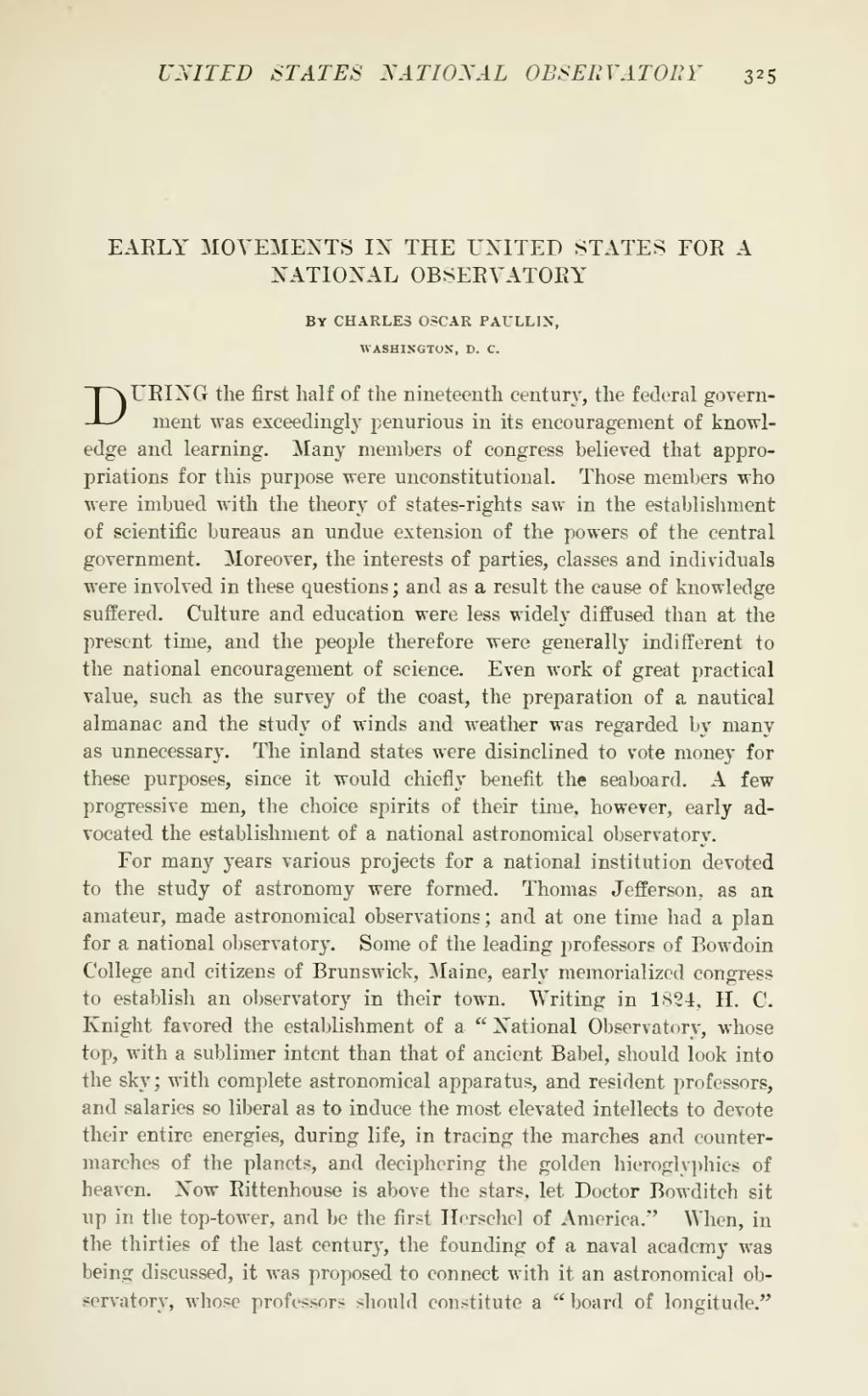| EARLY MOVEMENTS IN THE UNITED STATES FOR A NATIONAL OBSERVATORY |
By CHARLES OSCAR PAULLIN,
WASHINGTON, D. C.
DURING the first half of the nineteenth century, the federal government was exceedingly penurious in its encouragement of knowledge and learning. Many members of congress believed that appropriations for this purpose were unconstitutional. Those members who were imbued with the theory of states-rights saw in the establishment of scientific bureaus an undue extension of the powers of the central government. Moreover, the interests of parties, classes and individuals were involved in these questions; and as a result the cause of knowledge suffered. Culture and education were less widely diffused than at the present time, and the people therefore were generally indifferent to the national encouragement of science. Even work of great practical value, such as the survey of the coast, the preparation of a nautical almanac and the study of winds and weather was regarded by many as unnecessary. The inland states were disinclined to vote money for these purposes, since it would chiefly benefit the seaboard. A few progressive men, the choice spirits of their time, however, early advocated the establishment of a national astronomical observatory.
For many years various projects for a national institution devoted to the study of astronomy were formed. Thomas Jefferson, as an amateur, made astronomical observations; and at one time had a plan for a national observatory. Some of the leading professors of Bowdoin College and citizens of Brunswick, Maine, early memorialized congress to establish an observatory in their town. Writing in 1824, H. C. Knight favored the establishment of a "National Observatory, whose top, with a sublimer intent than that of ancient Babel, should look into the sky; with complete astronomical apparatus, and resident professors, and salaries so liberal as to induce the most elevated intellects to devote their entire energies, during life, in tracing the marches and countermarches of the planets, and deciphering the golden hieroglyphics of heaven. Now Rittenhouse is above the stars, let Doctor Bowditch sit up in the top-tower, and be the first Herschel of America." When, in the thirties of the last century, the founding of a naval academy was being discussed, it was proposed to connect with it an astronomical observatory, whose professors should constitute a "board of longitude."
